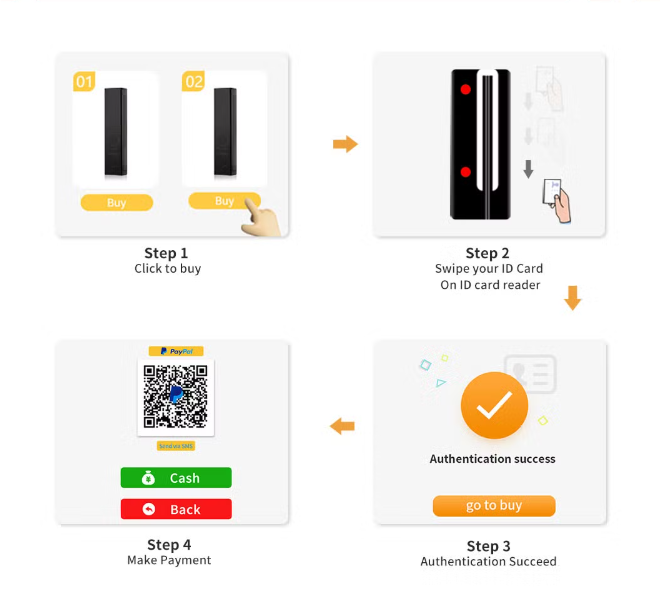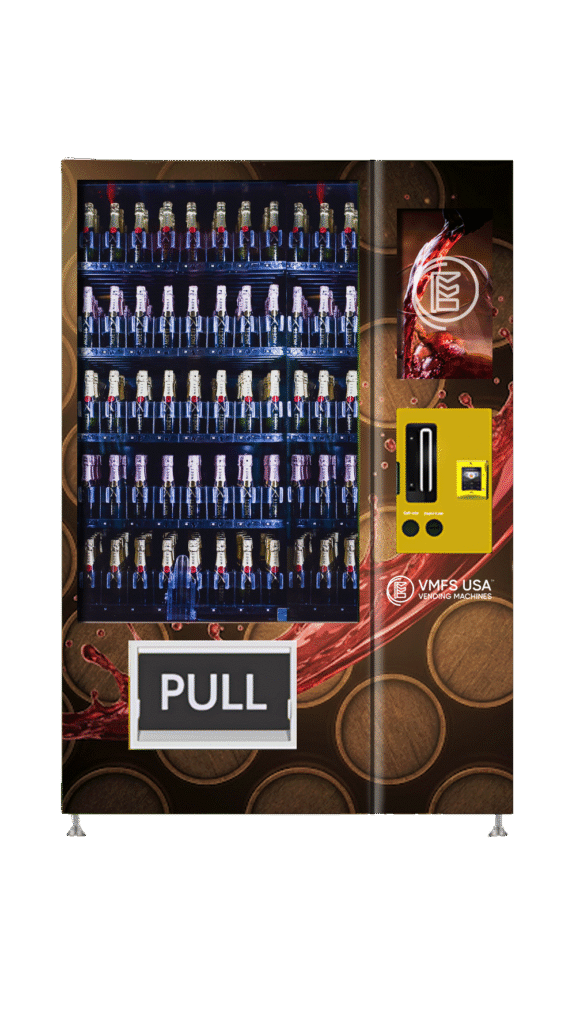Yes, alcohol vending machines are legal in some parts of the United States, but they are heavily regulated and not available everywhere. These machines exist and operate under strict compliance rules, including state-issued alcohol licenses, age verification technology, and security requirements. While states such as Florida and Nevada allow alcohol vending with the right permits, others like Pennsylvania limit it with conditions, and some states such as Utah prohibit it completely. This guide explains the laws, licensing steps, and compliance measures every operator must know before investing in an Alcohol Vending Machine.
In the sections below, you will learn how federal law sets the baseline for alcohol sales, how states differ in their rules, what licenses are required, and where alcohol vending machines can operate legally. We will also cover the risks of non-compliance and the safeguards built into modern machines, such as ID scanning and facial recognition, that make them possible in regulated environments. By the end, you will know exactly where alcohol vending is allowed, what permits are needed, and how to stay compliant.
Federal Laws on Alcohol Vending

Alcohol vending machines must follow federal law before any state rules apply. At the national level, two key laws matter most. The Tobacco 21 law makes it illegal to sell alcohol to anyone under 21. The Federal Alcohol Administration Act requires that all packaged alcohol meet federal labeling and distribution standards. Together, these rules set the minimum foundation for vending.
Compliance starts with age restrictions. Every sale must confirm that the buyer is 21 or older. Machines do this with ID scanning and, in some cases, facial recognition. These safeguards make vending reliable and give operators protection from liability. Without them, the machine cannot operate legally in any state.
Labeling also plays a role. All alcohol sold through machines must arrive in sealed containers with federally approved labels. This rule ensures that products meet safety, tax, and distribution requirements. It also prevents gray-market alcohol from entering the vending stream. In short, if a product is not labeled and sealed for retail sale, you cannot stock it.
Federal law does not issue vending licenses. Instead, it creates the baseline that states build on. For example, Florida allows machines once the operator meets state license requirements, but federal rules on age and packaging still apply. This division of authority means that success requires attention to both levels of law. Ignore one, and you risk fines or loss of license.
The federal framework provides certainty. Alcohol vending is possible, but only when machines enforce age checks and only when products follow labeling rules. These laws protect consumers and give operators credibility. By respecting them, you position your business as both legal and trustworthy.
State-Level Alcohol Vending Laws
While federal law sets the foundation, each state decides whether alcohol vending machines can operate. Some states welcome them, others allow them with strict rules, and a few ban them completely. Knowing where your machines can run is the first step toward compliance.
States That Allow Alcohol Vending
Florida and Nevada lead the way. Courts in Florida approved wine vending machines with ID checks and proper alcohol permits. Nevada allows vending in licensed venues that already serve alcohol. Texas has local exceptions that let machines operate under specific beverage permits. These states give operators clear paths to compliance and real opportunities to expand.
States With Restrictions
California, Pennsylvania, and New York allow alcohol vending, but only under tight control. California ties vending to on-premise licenses, which means only bars, hotels, and restaurants can use them. Pennsylvania requires ID scanning, video monitoring, and state oversight. New York allows certain models but limits them to licensed venues with age verification in place. These markets demand more effort, but they still reward operators who stay compliant.
States That Ban Alcohol Vending
Utah, Alabama, and South Carolina prohibit alcohol vending machines altogether. In these states, operators cannot install machines under current law. Entering without approval brings penalties and can also damage future chances if laws change later. For now, the only option is to wait for legislation to evolve.
Alcohol Vending Legality by State
| Category | Examples | Key Rules |
|---|---|---|
| Allowed | Florida, Nevada, Texas (local) | ID verification required, alcohol license needed, venue restrictions apply |
| Restricted | California, Pennsylvania, New York | On-premise license only, ID scanning or video monitoring, state oversight |
| Prohibited | Utah, Alabama, South Carolina | No alcohol vending allowed under current law |
This map of legality shows why research matters. The same machine may operate smoothly in Florida but face restrictions in California or a ban in Utah. Smart operators check state laws before placement, ensuring both compliance and profitability.
Licensing Requirements for Alcohol Vending Machines

Licensing determines whether an alcohol vending machine can legally operate. Every state issues permits through its Alcoholic Beverage Control (ABC) authority. Without a license, machines cannot sell even sealed beverages. Operators should start by reviewing their state’s requirements before investing in Alcohol Vending Machines.
Types of Licenses
States divide alcohol licenses into categories. The most common for vending include:
- Beer and Wine Permits: Allow the sale of beer, wine, and low-proof cocktails. These permits are usually cheaper and simpler to obtain than full liquor licenses. Machines such as the Wine Vending Machine often operate under this category.
- Off-Premise Licenses: Permit sales for consumption off-site. These apply when vending machines sell sealed containers in hotels, retail spaces, or event venues.
- On-Premise Licenses: Allow alcohol sales for immediate consumption in bars, restaurants, and lounges. Vending machines in these locations operate under the same permit as the venue.
Fees and Costs
License fees vary by state and type. A beer and wine permit might cost $300 annually. Full liquor licenses often run from $1,500 to more than $14,000 per year in states like California or New York. Renewal is required each year, and missing the deadline can suspend vending rights.
Training and Oversight
Some states add mandatory training. Arkansas requires applicants to attend an ABC seminar before issuing a license. Pennsylvania enforces ID scanning and, in some cases, video monitoring of every transaction. These conditions may raise operating costs, but they also protect operators by proving compliance during audits.
Local Approvals
City and county governments often add their own permits. Zoning boards decide whether vending machines can operate in hotels, lounges, or retail locations. A machine designed for chilled canned cocktails, like the ChillDrop Vending Machine, may pass state requirements but still need local approval before installation. Checking both state and city laws avoids costly mistakes.
Licensing is not only a legal necessity but also a trust signal. By securing the correct permits, paying fees on time, and completing training, operators show regulators and venue owners that they take compliance seriously. This foundation makes alcohol vending both legal and sustainable.
Compliance Features That Make Vending Legal
Alcohol vending machines are designed with compliance as the top priority. These features are what allow them to operate legally in states that approve alcohol vending. Without them, regulators would not permit machines to run without staff oversight.
Age Verification Technology

The most important safeguard is age verification. Machines scan government-issued IDs and confirm the buyer is 21 or older. Some models add facial recognition as a second layer of protection. This system enforces the Tobacco 21 law and provides operators with proof of compliance for every transaction. VMFS USA also offers Age Verification Vending Machines that integrate this technology for alcohol, vape, and other restricted products.
Secure Dispensing Systems
Alcohol cannot be dispensed like snacks or soda. Machines often use elevator systems that lower bottles or cans gently to the pickup tray. This prevents damage and keeps products sealed until the customer retrieves them. A model like the Wine Vending Machine relies on these systems to handle fragile glass safely.
Cashless Payments with MDB Compatibility
Most alcohol vending machines operate cashless with MDB-compliant card readers and mobile wallet payments. Cash is rarely supported because it adds risk and makes compliance harder to prove. Linking payment directly with ID verification ensures each sale meets legal standards.
Remote Tracking and Reporting
Cloud platforms record every transaction, track stock, and issue alerts for restocking. This creates a full compliance log that can be presented during inspections. Operators managing multiple Alcohol Vending Machines gain transparency and efficiency from one dashboard.
Locks and Security Measures
States also expect machines to prevent tampering. Reinforced locks, steel cabinets, and vandal-resistant doors protect the alcohol until a verified sale is complete. Together with age verification, these systems keep products secure and reduce liability for operators.
These compliance features work together to satisfy regulators. Age checks protect the public, secure dispensing protects products, and digital tracking protects operators. They turn alcohol vending from a legal risk into a trusted business model.
Where Alcohol Vending Machines Can Operate

Even in states that allow alcohol vending, placement rules matter. Machines can only operate in venues that meet licensing and compliance standards. Understanding where vending is legal helps operators avoid fines and build trust with regulators.
Bars and Nightclubs
Bars and clubs are some of the best venues for alcohol vending. Machines extend sales into late hours when staff may be limited. In most states, they can only operate under the same on-premise license as the venue. That means the machine must sit inside a licensed space where alcohol is already served.
Hotels and Lounges
Hotels and lounges often receive approval for alcohol vending machines when they restrict access to guests 21 and older. Placement near lobby bars or guest lounges makes the service convenient and profitable. Some operators use compact models like the ChillDrop Vending Machine to provide chilled beer, wine, and cocktails in sealed containers.
Festivals and Events
Large events such as concerts and festivals can also support alcohol vending. Machines work best in gated areas where entry is restricted to 21 and older attendees. State law usually requires that organizers already hold a temporary event alcohol permit. In these cases, vending extends service without adding extra staff.
Retail and Specialty Shops
Some states permit alcohol vending inside licensed retail stores, wineries, or specialty shops. These machines typically operate under an off-premise license, which allows customers to buy sealed containers for consumption elsewhere. A Wine Vending Machine fits well in this environment because it keeps bottles secure and ready for purchase.
Where a machine can operate always depends on state law, local zoning, and the type of alcohol license held. By matching the right machine with the right permit, operators can expand service in bars, hotels, festivals, and select retail spaces legally and confidently.
Risks and Penalties for Non-Compliance
Alcohol vending can be profitable, but only if operators respect the law. Failing to comply brings heavy consequences, from financial penalties to the loss of your license. In some cases, regulators can even seize machines on the spot. The risk is real, and operators must take it seriously.
Fines and Financial Penalties
States impose strict fines for underage sales. In California, a single violation can cost thousands of dollars. Repeat violations raise penalties and can shut down your business. Machines that lack age verification features put operators at the highest risk. Choosing units with built-in safeguards, such as Age Verification Vending Machines, reduces this liability.
License Suspension or Revocation
An alcohol license is a privilege, not a guarantee. If regulators find violations, they can suspend or revoke your license. Without it, your machine cannot sell a single product legally. Losing a license also makes it harder to apply for new permits in the future. In short, one mistake can damage your long-term business prospects.
Legal and Criminal Liability
Operators may also face civil lawsuits or even criminal charges for repeated violations. Selling alcohol to minors, bypassing state permits, or ignoring local zoning laws can all trigger legal action. Beyond fines, lawsuits can harm your reputation and weaken partnerships with venue owners.
Reputation and Business Loss
Compliance failures spread quickly in nightlife and hospitality industries. Venue owners avoid operators with a history of violations. Customers lose trust when machines are linked to unsafe or illegal practices. Compliance is not just about avoiding penalties. It is about protecting your brand and proving that Alcohol Vending Machines can be a safe, modern solution for selling alcohol.
When handled properly, alcohol vending becomes an opportunity. When handled poorly, it becomes a liability. The difference comes down to compliance. Every operator should treat it as the foundation of success.
FAQs
No. Some states allow them, others allow them with strict conditions, and a few prohibit them. Always check your state’s Alcoholic Beverage Control rules before placing an Alcohol Vending Machine.
Most operators need a beer and wine permit or an on-premise or off-premise license, depending on venue type. Fees and categories vary by state. Contact your state ABC office first, then confirm any city permits or zoning approvals.
It depends on the state. Some require on-site or remote oversight. Others approve unsupervised machines when age verification, logging, and secure dispensing meet state standards.
They scan a government ID and confirm the buyer is 21 or older. Some machines add facial recognition for a second check. For a purpose-built option, see our Age Verification Vending Machines.
Licensed bars and nightclubs, hotel lounges, gated festivals with 21-plus entry, and some specialty retail locations. Placement must match your license class and local zoning rules.
States can issue heavy fines, suspend or revoke your license, and in some cases seize equipment. Violations also harm venue relationships and brand trust. Start with licensing, then choose compliant hardware from our Alcohol Vending Machines catalog.
Conclusion
Alcohol vending machines are legal in some states, restricted in others, and prohibited in a few. The key to success is compliance. Federal law requires that every sale confirm age and that all products remain sealed and properly labeled. State and local laws add the licensing and zoning rules that decide where machines can operate. When operators respect these layers of regulation, vending becomes a safe and profitable way to sell alcohol.
For first-time operators, the process begins with research and licensing. Start by checking your state’s Alcoholic Beverage Control authority for permit requirements. From there, select a machine designed for compliance, such as the Wine Vending Machine for bottle sales or the ChillDrop Vending Machine for chilled cans and cocktails. Each unit is built to protect products, enforce ID verification, and create digital records for regulators.
If you are ready to explore this opportunity, browse our full lineup of Alcohol Vending Machines. With compliance built in and U.S.-based support from VMFS USA, you can expand into alcohol vending with confidence.


Share:
20 Best Vending Machine Item Ideas for Profitable Locations
20 Best Vending Machine Item Ideas for Profitable Locations